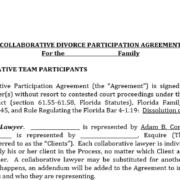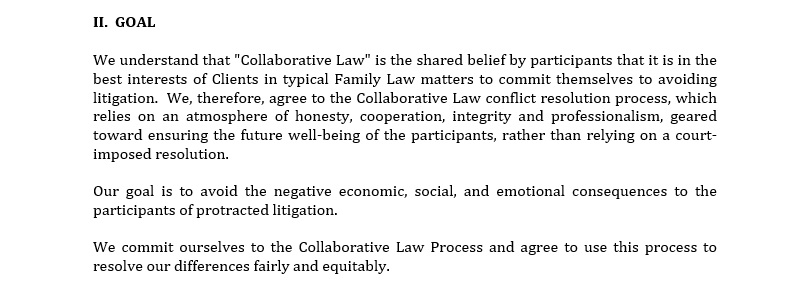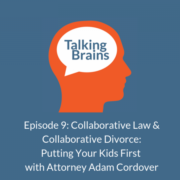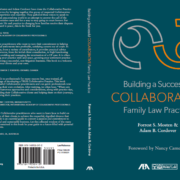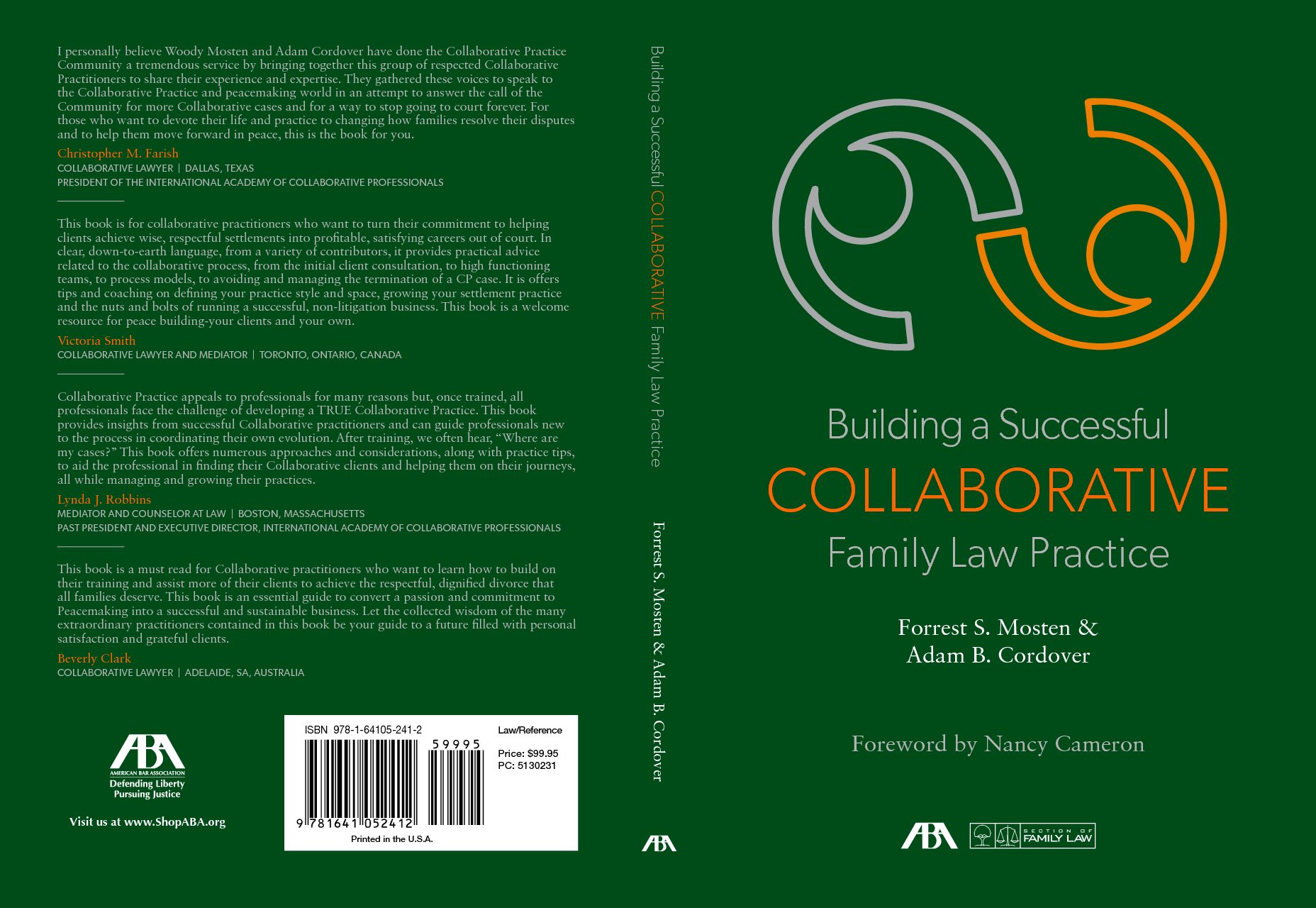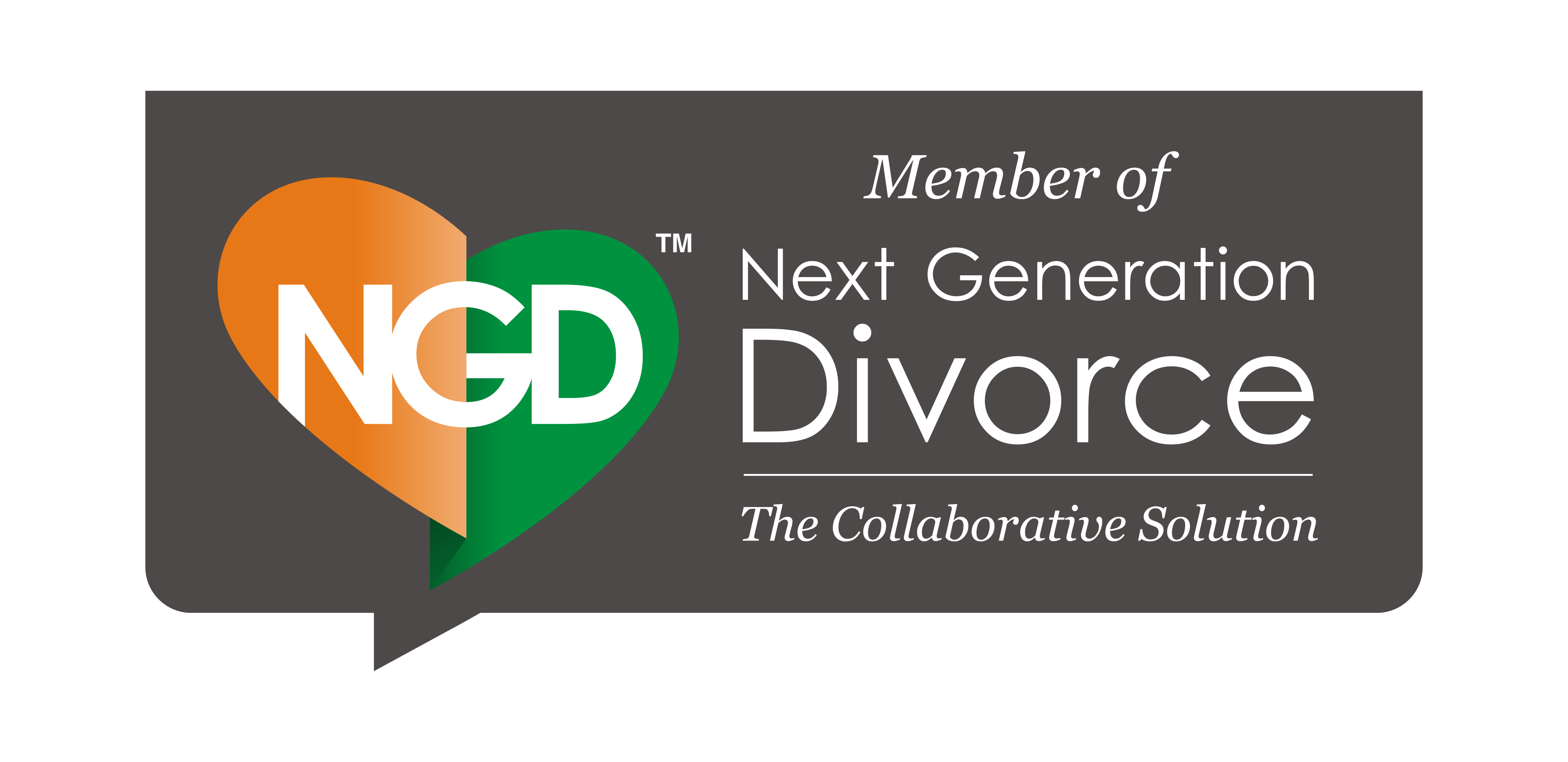Sample Collaborative Divorce Participation Agreement
If you are considering or going through divorce, there are two terms you should become familiar with: collaborative divorce and collaborative divorce participation agreement.
Collaborative divorce is a form of private dispute resolution where you, your spouse, and your attorneys agree from the beginning that they will not fight in court. You agree that you do not want to subject yourselves, your children, your business, and your friends and family to an adversarial, hostile, and public court system. You just want to move on to your better future in the least painful way possible.
Though there are statutes and rules that interact with the collaborative divorce process, it is mainly governed by a contract, known as a collaborative divorce participation agreement. This is an agreement that you and your spouse sign. Because the collaborative divorce process is very different than the traditional divorce process, it is important that you have a complete understanding of your collaborative divorce participation agreement and walk through the agreement thoroughly with your attorney.
Below is a sample collaborative divorce participation agreement that I often use in my cases here in Tampa Bay. Keep in mind that there are a lot of variations of this agreement, and different communities use different participation agreements. In fact, I use different participation agreements depending on the circumstances of the family and what type of resolution they are trying to reach (i.e., divorce, post-divorce, prenuptial agreement, or postnuptial agreement).

